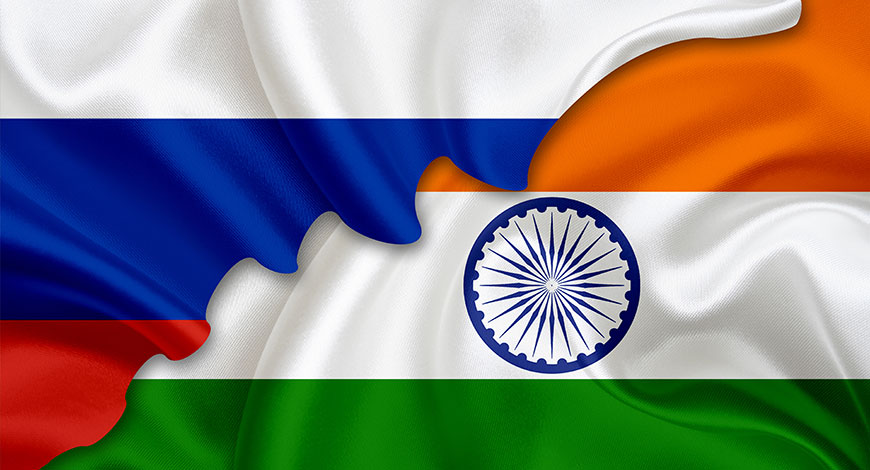India-Russia Relations: Foreign policy observers observing a new global realignment following Russia’s invasion of Ukraine may find India’s foreign and economic policies toward the United States and Europe on the one hand and Russia on the other to be seemingly contradictory. Especially given New Delhi’s admission to the US-led Indo-Pacific Economic Forum (IPEF) in May and its participation as a partner country at the G-7 meeting in Germany last month.
At a time when the West has expressed concern about New Delhi’s stance on the Ukraine invasion, these developments are in line with the lofty goal of economic decoupling from China—not only for the West but also for India.
Despite claims that India is working to reduce its reliance on Chinese imports, bilateral trade increased by a whopping 15% in the first quarter of 2022, according to Chinese Customs data, despite pandemic-induced disruptions in global supply chains and, more importantly for India, ongoing Chinese border incursions. In the India-China equation, there is a clear contradiction between intent and action.
Unlike much of the rest of the West, which is buckling under the weight of rising fuel prices and reshaping its military and geostrategic policies in response to what it sees as an existential threat posed by Russia, India has chosen a path of strategic balance. Bringing Moscow and Beijing even closer together is not a desirable outcome for Delhi. A different stance on Russia in the face of mounting Western pressure could only exacerbate such closeness. This is where the contradiction in India’s policy toward the United States and Europe regarding Russia becomes clear.
Leveraging its democratic credentials as a natural ally of the West as well as its regional role in Asia, India has argued that its historical relationship with Russia and the former Soviet Union, as well as the need to ensure continued regional support against a China-Pakistan nexus, means India can’t and doesn’t want to turn away from Russia, even though absolute defence reliance on Russia has fallen. If the West wishes to compete with India, it must accept this position.
Post-Ukraine European realpolitik has made it clear that as long as India is an electoral democracy, even domestic violations of its liberal constitution will not prevent the US and Europe from viewing India as a partner in the long geostrategic power game against China.
For India, the reality—or rather, the inevitability—that Russia’s reliance on China will grow as a result of the West’s isolation presents an entirely new set of strategic challenges. A stronger partnership between Beijing and Moscow will affect Delhi’s leverage with Moscow, particularly as an honest broker in the event of increased India-China border clashes. Delhi must consider how far it is willing to go before reconsidering its stance toward Russia and when Western pressure will force India to choose a side.
While Russia’s invasion of Ukraine poses a near-term existential threat, European powerbrokers are acutely aware that, as with India, the real long-term geostrategic threat comes from China. The fact that India is the only South Asian country invited to join the US-initiated IPEF forum and lend geoeconomic heft to Indo-Pacific policy demonstrates this awareness, even if western concerns about India’s stance on Russia remain.
With frameworks like the IPEF attempting to set common standards for trade without engaging in any hard multilateral negotiations on tariff reductions or market access, many of its member countries (also members of the Chinese-led Regional Comprehensive Economic Partnership, or RCEP), will continue to rely heavily on trade ties with China, leaving India with no choice but to rely more heavily on Western-led partnerships.
For the time being, India has opted for a path of strategic balance. While this may be a viable short-term strategy as India uses its credentials as a key player in the global rules-based order to buy cheap Russian oil for its domestic market, reaching a fork in the road is a matter of when or not if. Given India’s geographical realities and domestic economic challenges at the time, the decision to reduce reliance on Russia should be obvious.
